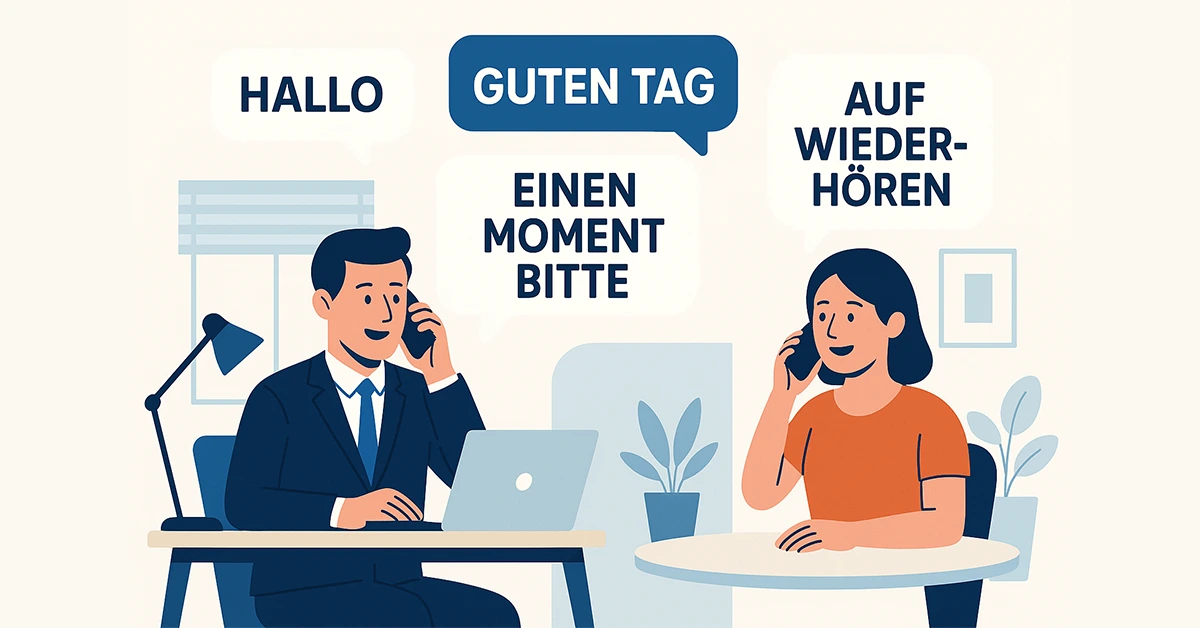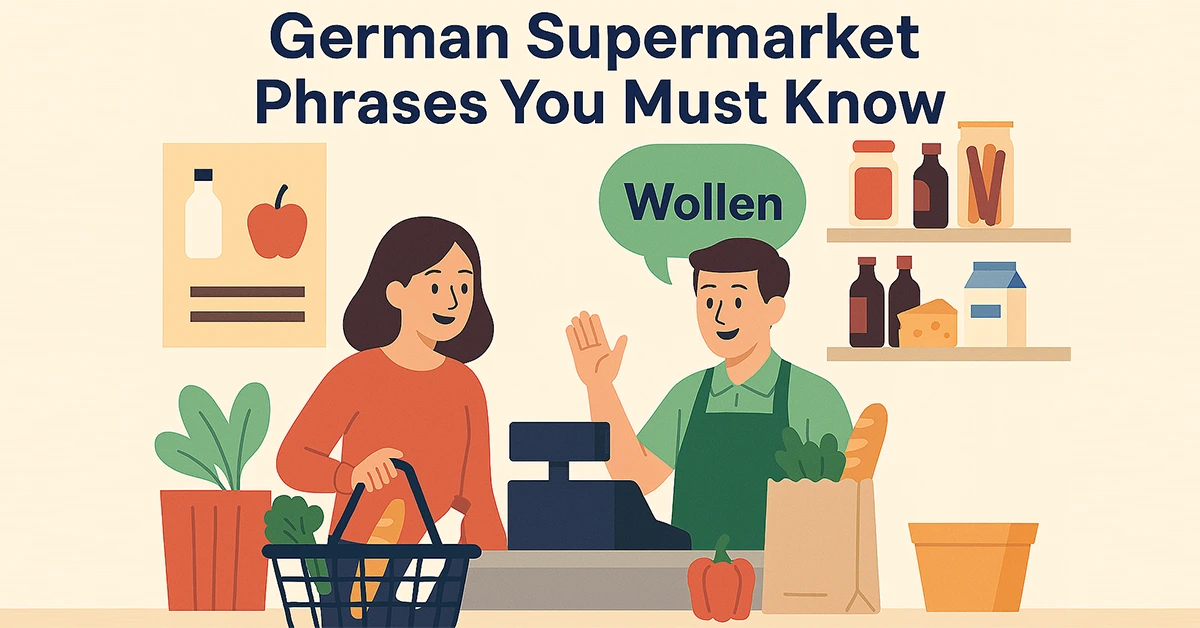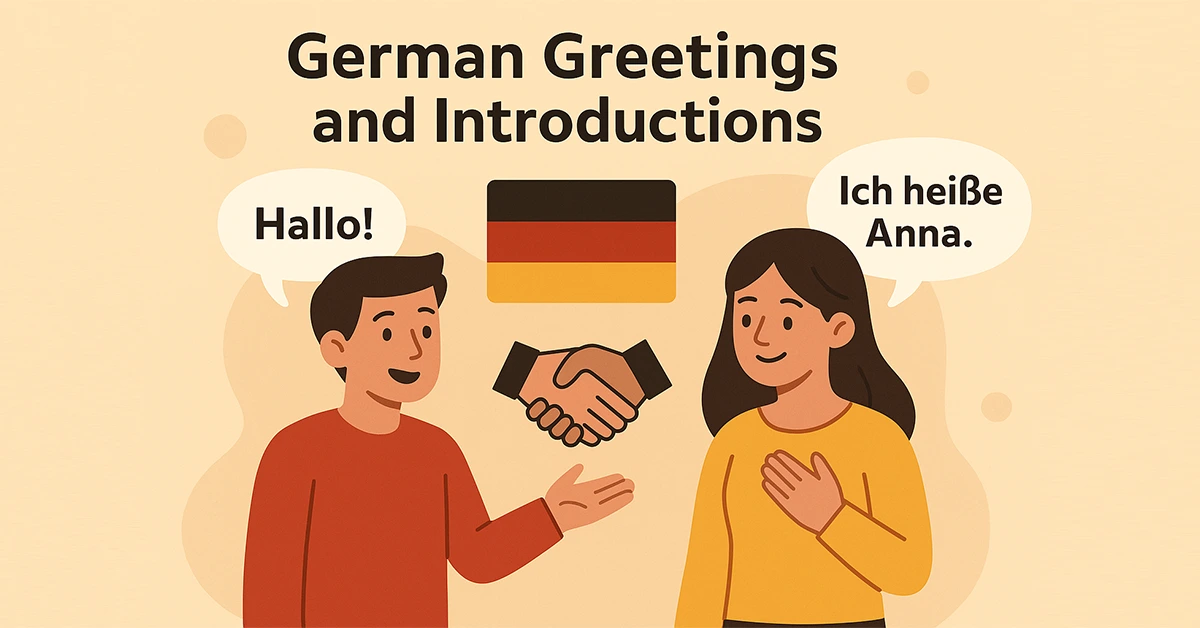German for daily life
-

German Phone Call Phrases – Speak Confidently + Free PDF
Master German phone calls with key phrases and dialogues for daily and business use. Download the free PDF cheat sheet and improve your speaking confidence.
-

German for Parents – Talking to Teachers and Schools in Germany
Learn essential German for parents to communicate with teachers and schools in Germany. This complete guide includes phrases, tips, and examples for real-life situations.
-

German Supermarket Phrases You Must Know
Learn essential German supermarket phrases for your next grocery trip in Germany. Master expressions for asking prices, reading labels, and getting help, with examples.
-

German Greetings and Introductions
Master German greetings and introductions with real-life phrases, audio, and etiquette tips. Learn how to say hello, introduce yourself, and impress in German!